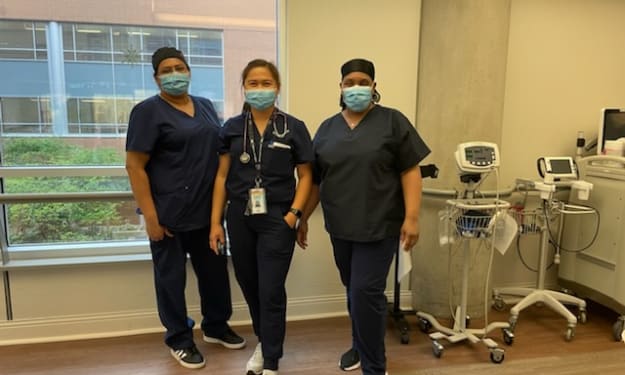COVID-19 patients had higher evidence of brain damage than Alzheimer's disease sufferers. COVID-19 patients had higher evidence of brain damage than Alzheimer's disease sufferers.
COVID - 19

Is it possible that COVID-19 is causing greater damage to the human brain than Alzheimer's disease? According to a new study, older COVID patients show higher evidence of brain damage than persons who do not get the neurodegenerative illness.
COVID patients had considerably greater amounts of particular blood proteins that generally rise when someone has neurological impairment, according to a study from NYU Grossman School of Medicine. According to the researchers, seven signs of brain damage were considerably greater among COVID patients with Alzheimer's disease than non-COVID patients with Alzheimer's disease across the short-term course of their illnesses. Among coronavirus patients, one of these markers was more than twice as high.
In a university release, lead author Jennifer Frontera, MD, a professor in the Department of Neurology, says, "Our findings suggest that patients hospitalized for COVID-19, and especially those experiencing neurological symptoms during their acute infection, may have levels of brain injury markers that are as high as, or higher than, those seen in people with Alzheimer's disease."
COVID patients should be concerned about which blood indicators.
The disorder toxic metabolic encephalopathy was the most common symptom of brain injury among COVID patients, according to the researchers (TME). Due to toxins produced by the immune system responding (sepsis), renal failure, and a lack of oxygen in the tissue, symptoms range from disorientation to coma.
During the first several months of the pandemic in 2020, the researchers studied 251 persons who were hospitalized with COVID-19. The subjects were on average 71 years old, although they were all in good health prior to their COVID infection, with no history of dementia or cognitive deterioration. The patients were divided into two groups: those who had neurological symptoms as a result of COVID-19 and those who did not.
The researchers then compared these people to a group of control patients from NYU Langone's Alzheimer's Disease Research Center's Clinical Core cohort. This group includes 54 healthy persons, 54 people with moderate cognitive impairment, and 53 people with Alzheimer's disease as part of NYU's long-term dementia study. During the trial, none of the control patients got COVID-19.
Three blood indicators — ubiquitin carboxy-terminal hydrolase L1 (UCHL1), total tau, and phosphorylated-tau-181 (ptau181) — all assess the death or disturbance of neurons in the brain, which is what scientists were searching for.
When the brain's axons are damaged, the levels of neurofilament light chain rise. These are neuronal extensions that look like branches. The damage to glial cells, another kind of brain cell that supports the neurons, is measured by glial fibrillary acidic protein (GFAP) levels. Finally, amyloid beta 40 and 42 are typical indicators that accumulate in Alzheimer's patients.
The seven brain damage indicators were found to be over 60% greater in COVID patients with TME than in those who did not have neurological symptoms.
In fatal COVID cases, brain damage is significantly greater.
The study authors discovered that the signs for brain damage were considerably greater among individuals who did not survive their coronavirus infection, which is concerning. COVID-related markers were 124 percent greater in patients who died than in those who were discharged.
The data demonstrate that indicators for neurofilament light chain were 179 percent greater in coronavirus patients over the short term than in Alzheimer's patients. GFAP levels were also 65 percent greater in COVID patients compared to dementia patients.
"A patient's chance of developing Alzheimer's disease or similar dementias is increased by traumatic brain injury, which is also associated with elevations in these biomarkers," explains senior author Thomas Wisniewski, MD, head of the Center for Cognitive Neurology at NYU Langone. "We urgently need to explain if that type of link exists in people who survive severe COVID-19 with continued surveillance of these patients."






Comments
There are no comments for this story
Be the first to respond and start the conversation.